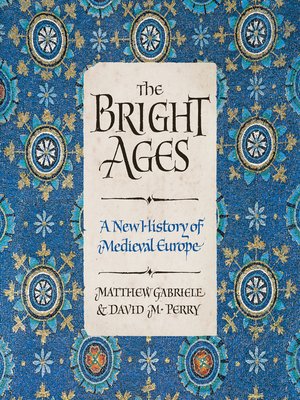I think The Bright Ages ended up on my TBR because I saw a Swedish copy at my in-laws and thought the topic sounded interesting, especially since my knowledge of Medieval history begins and ends with the interdisciplinary unit we had in middle school. While people crack jokes all the time about the perceived uselessness of fields like Medieval studies, familiarity with the period seems like good starting point for understanding how our current economic system got to be the way it is—and I’m sure I’m not the only person with a growing interest in that particular piece of history. Plus, as authors Matthew Gabriele and David M. Perry point out in the introduction, a (historically inaccurate) popular understanding of the Middle Ages informs political ideology even today. Educating the public is therefore part of improving the health of our political dialogue.
They have their work cut out for them, no doubt. How well did they succeed?
This is another case where ebook reading no doubt hampered my comprehension, especially since I read it in bits and pieces over a relatively long period. I started it sometime before my trip to the US in May, and I finished it on a flight to London on July 30. Even though each chapter is more or less standalone, focusing on a particular event or development, such a long time in between reading sessions meant all the previous context had long since vanished into the memory hole.
But more than that, after I finished the book I struggled to articulate how The Bright Ages had shed new light on the topic (if you’ll forgive the pun). Gabriele and Perry do an excellent job of bringing in marginalized figures into the picture, and they also continually emphasize how interconnected the world was at the time: goods and therefore people traveled across incredible distances, like barefoot Christian monks traveling within the Mongol empire. At the same time, it’s hard to argue that an era was more enlightened or humane than we give it credit for when you’re simultaneously describing book burnings and religious violence. Other points it seems like the distinction was one of semantics more than anything else. Whether or not Rome actually “fell,” it still declined in political importance. Of course, it could be that I didn’t even know enough to be dangerous, as the expression goes, and therefore don’t have a deeply ingrained imagined history to be debunked.
Whatever else, the writing is also always engaging and easy to follow. Gabriele and Perry depart from the typically dry style of academic writing and take a warm, conversationalist tone. As a result, The Bright Engages is a fun and engaging read, and the fact that it took me so long to finish the book is not in any way a commentary on its quality. It’s me, I’m the problem.

